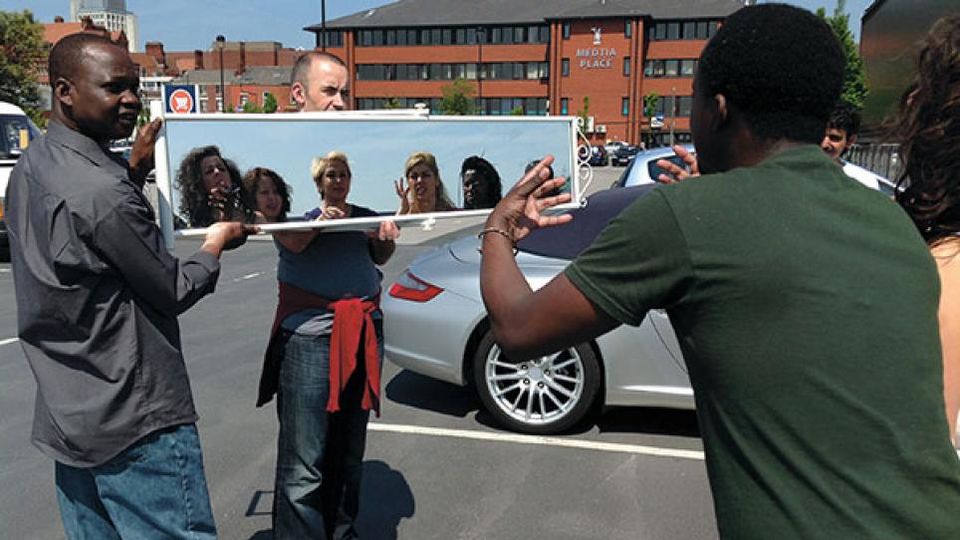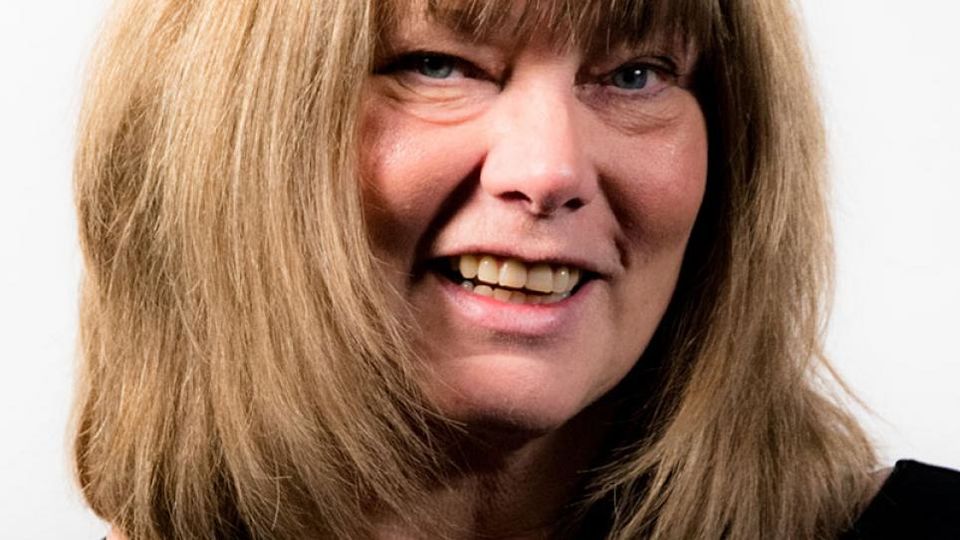Interview: Professor Sally Mackey Discusses Her Work

In the first of our new, regular series of interviews with members of the Central community, we talk with Professor Sally Mackey, Professor of Applied Theatre and Performance and Associate Director (Research and Projects), about her AHRC research grant and her instrumental role in establishing Applied Theatre at the School.
Q: How did this grant come about?
This is a Follow-on Funding award for Impact and Engagement from the Arts and Humanities Research Council (AHRC). It ‘follows’ a previous award from the AHRC, ‘Challenging Concepts of “Liquid” Place through Performing Practices in Community Contexts’. That research took place in Aberystwyth, Oldham and the east end of London and looked at how a range of ‘everyday’ performance practices might provoke a shift in people’s perceptions of where they are. Those that are too embedded might re-view dull, quotidian places; people who are new to places might be eased into their location; some might think differently about places they fear. Challenging Place with its range of (sometimes bizarre!) performance practices allowed us to experiment with those ideas. Margaret Ames and Mike Pearson from Aberystwyth Universitywere co-investigators on Challenging Place.
The AHRC offers the opportunity to apply for follow-on funding to ‘roll out’ the research practice into contexts not previously considered in the original research project. This is what we have done.
Q: Tell us some more about your research; how does this new piece work build upon your previous research?
The new grant is called, somewhat lengthily, ‘Performing Places: working with local councils to reach new communities and facilitate wellbeing in living environments’. We’ve shortened it to Performing Local Places! It will do what it says on the tin, really. In this project, I’m working directly with two local authorities, Camden and Oldham Councils. The model of ‘Performing Place’ is taken into areas of council ‘priority’. We are working with a department of social care in Camden and one of their ‘Supported Living’ projects, St Mungo’s. Adults with mental health issues will be the participants and we will see if this performance practice can encourage people to be more willing to consider semi-independent living rather than the fully supported living environment.
In Oldham, we are working with Oldham Theatre Workshop (as we did before) in a neighbourhood, Clarksfield, with a particular set of street residents comprising those who have lived there for some years with newly arrived and settled Roma people. We are looking at how performance practices can aid community dwelling in one place.
The Camden work will take place over a few months of weekly sessions; the Oldham project will be a week-long intensive (after a range of pre-engagements).
Q: How will your work impact upon Central and the Local Community?
As always, it’s hoped that this project will raise the reputation of Central, its research and its reputation with working in communities – local and otherwise. Research at Central is varied and ‘world-leading’, often combining theoretical novelty with fine and distinctive practice. What excites me about Performing Local Places is that it takes ‘original’ research from Challenging Place and extends it or rolls it out further into two communities, one of which is literally on our doorstep. We will even be able to bring into Central the St Mungo’s residents for one of the’cultural’ visits we are planning.
Q: Central is consistently described as being at the forefront of Applied Theatre work, as well as our research been recognised as ‘world-leading’. What is Applied Theatre?
Applied theatre has been described variously. For me, it is theatre, drama, performance-related work that has a particular focus. This is that work is with participants, many of whom are not professionals, often taking place outside traditional theatre buildings and frequently concerns particular issues that affect the participants or that might be prevalent in society, affecting more than just the participants. It is something of an umbrella term to include a wide range of practices such as work with elders, theatre in prisons, theatre-in-education, work abroad in partnership with NGOs, theatre ‘for development’, specific community-focussed work (as in Oldham) and many more. Central applied staff have specialisms in health-related theatre, those who have experienced trauma, LGBTQ associated theatre and many others (including work specifically around locatedness and place!). Aesthetics of performance are very much part of the field and, often, performance is at the heart of applied work.
Q: How does your work relate to the history of applied theatre at Central?
We have the largest field of applied staff and students in the world (we believe). This work grew, originally, from Drama Education and our teacher training, in the early 1990s. We have two key degrees: BA (Hons) Drama, Applied Theatre and Education (with a specific Writing for Performance pathway) and an MA Applied Theatre. Having founded ‘applied’ at Central, it’s fantastic to see how this work has grown and developed. My own interest in ‘Place’ grew from a BA project at the Minack Theatre in Cornwall. It developed when I did my PhD where the practice was with a number of graduates from the course (and some MA students). After that, I began to apply for research funding to take the work more closely into communities, using models that were originally thought through from that PhD. So there is a direct link with the applied work at Central! I’ve been very fortunate to work here and have all these opportunities.

